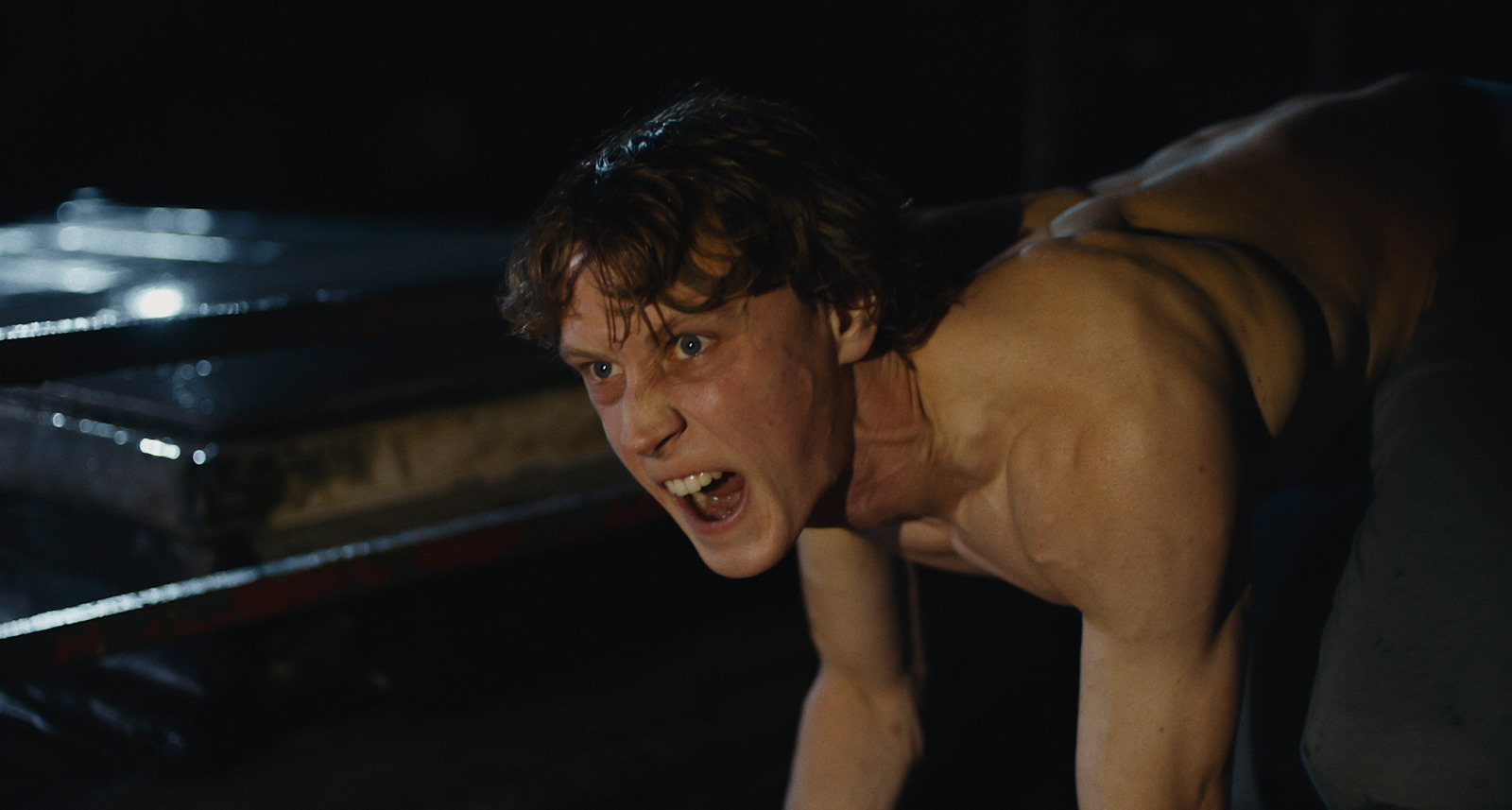A "Wolf" in Men's Clothing
 Monday, December 6, 2021 at 4:40PM
Monday, December 6, 2021 at 4:40PM by Jason Adams

There is an unfinished quality to the actor George Mackay's face, as if he's a first-draft in putty, not quite defined into full features yet. That quality makes him a perfect fit for Wolf, writer-director Nathalie Biancheri's new film about a young man who believes himself to actually be, under all that pretty pink skin, a you-guessed-it wolf. Mackay naturally seems permanently half fixed, like he's trapped in the middle part in a werewolf transformation montage -- his impermanence putting this character's indeterminate selfhood right there written over his taut cheekbones.
I wish the rest of Wolf, which sees Mackay's character of Jacob shuffled off to a mad doctor's experimental psychological retreat/prison for, you know, "his own good," worked as well as Mackay does...
But the blur-defined contours of that exquisitely fascinating skull of his bleed outward too far -- the film itself can't seem to find its outlines. The tone is ambiguous to a fault, detrimentalizing Wolf's \message with uncertain humor and obvious anti-psychological bromides that land more like a hail of dull stones than they do the soft whisper of animal paws on forest grass that it's aiming for.
When we first truly meet Jacob, after a brief prologue where he's seen naked cavorting in the woods, he is quiet, clean, put together. Human, you might say. Society's approximation of "sane" you might also say. He soon meets the group he'll be sharing time with inside the conversion-therapy center where his sad-eyed parents have dropped him off after some undisclosed accident has occurred. At its start the film awkwardly plays each one of Jacob's fellow species-dysphorics as punchlines, each one sillier than the one before -- look at this nutty squirrel dude, y'all!! And though you can see the film's eventual intentions at undermining these initial assumptions the scenes still put a bad taste in the mouth that you never quite shake.
Wolf tips into immediate meanness and then spends the rest of its time explaining to us why what it had done was actually mean, growing ever more hysterical. But, speaking personally here, the meanness was clear from the start, and so the arc of the film's lessons turns redundant. Which is just to say that I went into Wolf knowing it's not cool to make fun of people who are different, who are suffering because of this world, and that I would hope most people know that much. (These past few years of real world horrors make me wonder otherwise, obviously.) But Wolf starts out expecting the worst from its audience, making broad comedy of humanity's basest instincts, and the film as a whole suffers for it.
That said it does get better from there. Mackay remains an hypnotic one-of-a-kind presence. I could watch hours of him simply sliding his sleek shoulder-blades up and down in their decidedly inhuman fashion. And while Wolf never truly surprises, following the expected paw-prints in the sand toward obvious themes of self-acceptance, there are good doses of sadism and weirdness about as it luxuriates in the animalistic impulses of Jacob and his newfound friends. There's the high-cheekboned house-cat girl (Lily-Rose Depp), the girl who whinnies like a horse, the parrot person all decked out in feathers and beak flapping her little arms akimbo. And best of all there's a real unnerving joviality in the desperate-for-affection affect of Fionn O'Shea, who believes himself a golden retriever. His cheerfulness tinged with hard desperation is the movie's best hand to play.
Then there's Paddy Considine, the head doctor in charge who goes by "The Zookeeper," who is, as ever, a formidable presence. The film might not blow any minds by heavily insisting that it is he, the Establishment Man, that's the animal, but Considine acts the hell out of it anyway because that's what he does. Truly once the leather harnesses and pup-play fetish-gear objects start working their way into the plot you really think the movie might get more interesting, working in themes of sexual dominance and role-play. But that's when it gets skittish again, backing off like a bad dog who pushes its own nose into its filth. If Wolf had truly had the courage of its own feral convictions and gone just a few steps further it could've left deep marks; hot scratches down our backs. Memorable scars, baby! Alas. As is you could probably make a nice coat out of it, soft to the touch, catching some eyes on the street, before fashion slips by and to the back of the closet it goes.



Reader Comments (2)
wow exactlly
i enjoyed
راهنمای خرید قفل دیجیتال
wow exactlly
i enjoyed
راهنمای خرید قفل دیجیتال